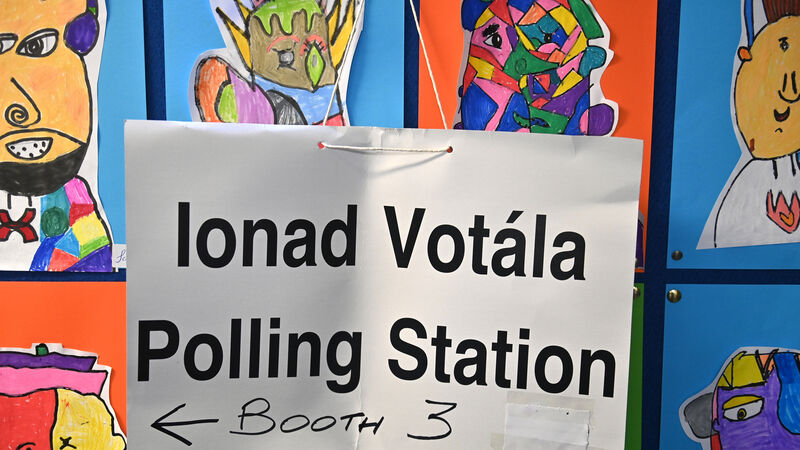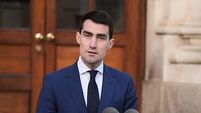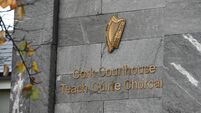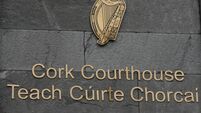Latest: Voting for local and European elections across Cork ends

Irish people will be electing a swathe of new councillors as well as picking candidates to send to the European Parliament and, for the first time, some voters will be directly electing a mayor to represent them locally.
Voting in the local and European elections has ended, but the results will take days to be finalised.
Ballots in the local elections can begin to be sorted straight away on Saturday but results in the European election cannot be declared until after all EU states have finished polling – which will not happen until late on Sunday night.
Ireland uses a system of proportional representation which allows voters to rank every candidate in each race by order of preference.
Candidates must reach a certain quota of votes in order to be deemed elected.
In the likely event that not enough candidates are above this threshold following the first count, hopefuls with the least amount of votes are eliminated and their votes are redistributed based on the further preferences on the ballot papers. The same occurs when a candidate is elected with a “surplus” of votes.
It means the paper ballots in each election, which are filled out with pencil or pens, are sorted and counted multiple times by hand.
Early indications of final voter turnout across Cork city reportedly suggest it's on a par with if not in excess of last time.
The Cork City returning officer said early indications show overall turnout is close to 50%.
As of 8pm, voter turnout for County Cork in both Local and European elections is 43.4%, a slight increase from 42.2% this time in 2019.
The returning officer said, “The differences between polling stations has increased since 5pm, varying from 32% to 53% with most polling stations sitting between 39% and 47%.”
Voter turnout for Cork county in today’s Local and European elections as of 5pm is 26.8%, with individual polling stations varying from 21% to 34%, though most polling stations are sitting between 24% and 29%.
This is slightly lower than the turnout for the same time at the 2019 Local & European elections at 27.2%, but higher than the 2024 Referenda at 22.3%.
The Cork city returning officer told at 4pm that “very approximate figures” indicate a turnout in the region of 25% to 30% so far – overall turnouts for the 2019 local and European elections were between 42% and 50% across the five electoral areas.
VOTERS have been casting their ballots in the local and European elections at polling stations around County Cork since 7am today and, according to an estimate at midday on polling day,turnout is ahead of the low levels recorded at the same time on the day people voted on the Care and Family Referendums in March.
A spokesperson for the County Cork returning officer said the turnout at midday was 11.3%, ahead of the 8.4% recorded on polling day for the Care and Family Referendums in March.
Figures for comparison from polling day for the 2020 General Election was 17.9% and 12.3% for the 2019 Local and European Elections.
Other updates regarding polling throughout Cork will be issued for 5pm and 8pm today.
POLLS have opened in Ireland as voting has begun in three highly-anticipated elections.
Irish people will be electing a swathe of new councillors as well as picking candidates to send to the European Parliament and, for the first time, some voters will be directly electing a mayor to represent them locally.
The separate elections come at a febrile time in Irish politics dominated by discussion on a housing crisis, the cost of living and migration.
The coalition partnership of Fine Gael, Fianna Fail and the Green Party has been battling criticism domestically and on the continent over other issues including climate action, agriculture policy and defence co-operation in the EU.
The eagerly-awaited polls will provide political parties with concrete evidence of voter sentiment, having had to wait more than four years since the last nationwide elections.
In the intervening years since the last general election, politicians have had to rely on newspaper opinion polls to gauge the mood of the nation.
The main takeaway of the 2020 campaign was a massive upswing in support for Sinn Fein, which took away almost a quarter of the popular vote.
To leader Mary Lou McDonald’s regret, this was unrealised potential as the party was still left in opposition after failing to run a sufficient number of candidates in the parliamentary constituencies.
Since then, estimated support for Sinn Fein hovered above 30% for a long time – even temporarily reaching highs of around 35%.
However, opinion polls over the last eight months suggest that support for the party is on a dramatic slide – as independents eat up more of the expected vote share.
Many of the ballot papers across the elections contain a large number of independents with a variety of political leanings, several of whom have been described as anti-immigrant.
For a protracted period of time, Ireland has continued to fail to provide accommodation for all asylum seekers. There have been several anti-migrant protests across the State and buildings earmarked to accommodate refugees have been damaged in suspected arson attacks.
Also of note, Fine Gael appears to have had somewhat of a “Harris hop” in the polls following the shock resignation of Leo Varadkar as leader of the party earlier this year, leading to Simon Harris taking over that position as well as the role of Irish premier.
The results of the three campaigns being decided on Friday may be instructive for the overall state of the parties – and could potentially direct Mr Harris’ decision on when to call the next general election, which must be held by March next year.
The Taoiseach cast his votes early at Delgany National School in Co Wicklow ahead of a day of campaigning across the country.
Mr Harris told reporters at the voting centre in his home constituency.
“So polls are open to 10pm tonight, I’d urge everybody to get out and have their say in what is a great exercise in democracy.
“We live in a healthy democracy and today is working proof of it.“ Across the island, millions of residents are eligible to vote in local elections.
There are 31 local government bodies in Ireland. Each county and city council is divided into local electoral areas with a specified number of council seats to be filled in the election.
In total, there are 166 electoral areas in Ireland and each of them elects a number of councillors. The number of councillors to be elected nationally is 949.
These representatives are tasked with making policy decisions at local level including on planning and community development.
At the same time, EU citizens registered in Ireland are eligible to vote for 14 Members of the European Parliament (MEPs) across three varied constituencies: Dublin, South, and Midlands-North-West.
The MEPs are responsible for debating EU-wide legislation and working on the budget for the bloc.
The local and European elections are held every five years.
In the south west of the country, voters in Limerick city and county have the opportunity to directly elect a mayor. From now on, this vote will also take place every five years.
The successful candidate will be considered the region’s first citizen and will have unique executive powers around long-term strategic planning, including measures on housing delivery, road infrastructure and environmental measures.
They can serve a maximum of two terms, each lasting five years.
There are 15 candidates vying for the new job – which carries a salary of approximately 150,000 euro.
Voting will come to an end at 10pm on Friday, but the results will take days to be finalised.
The role is seen as a test case for further rollout at other local authorities in the future.
Ballots in the local elections can begin to be sorted straight away on Saturday but results in the European election cannot be declared until after all EU states have finished polling – which will not happen until late on Sunday night. Counting in the mayoral election is expected to begin on Monday.
Even then, Ireland uses a system of proportional representation which allows voters to rank every candidate in each race by order of preference.
Candidates must reach a certain quota of votes in order to be deemed elected.
In the likely event that not enough candidates are above this threshold following the first count, hopefuls with the least amount of votes are eliminated and their votes are redistributed based on the further preferences on the ballot papers. The same occurs when a candidate is elected with a “surplus” of votes.
It means the paper ballots in each election, which are filled out with pencil or pens, are sorted and counted multiple times by hand.
The entire process can take days to complete.










 App?
App?


